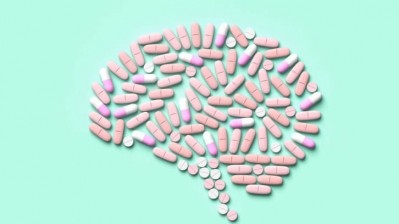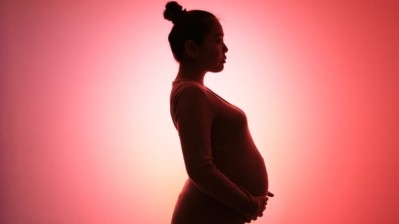Vitamin D deficiency increases risk of preterm birth among Black women

Black women are at high risk for vitamin D deficiency due to increased melanin which protects against harmful ultraviolet rays but inhibits vitamin D absorption and metabolism, the researchers wrote. According to the National Health and Nutrition Examination Survey (NHANES), 72% of the non-Hispanic Black population were deficient in vitamin D.
“In 2021, the disparity of preterm birth (PTB) among non-Hispanic Black women was doubled (14.8%) when compared to non-Hispanic white women (9.5%), a persistent increase in risk over decades,” the researchers added. “Higher socioeconomic status, maternal education and insurance status have not been shown to improve the risk of PTB for Black women in large epidemiological studies. No effective interventions have been identified to mitigate the risk of PTB for Black women.”
In addition, pregnant women deficient in vitamin D are at greater risk for depressive symptoms during pregnancy and the postpartum period. Prior research also suggests that pregnant Black women who have more depressive symptoms are at a higher risk of PTB than black women with no depressive symptoms.
Highest rates of preterm birth
The study explored whether vitamin D deficiency in early pregnancy increased the risk of PTB in later pregnancy in a cohort of Black women while adjusting for other variables.
The data for this research were obtained from a subset of the Biosocial Impact on Black Births (BIBB) study. The BIBB study was funded by the National Institutes of Health and recruited pregnant Black women from two different geographic sites in the US Midwest. The researchers recruited participants between December 2017 and March 2020. However, the study was placed on hold because of the Covid-19 pandemic.
Women were included in the BIBB study if they self-described as being African American or black, were 18–45 years of age, had a pregnancy with one baby at a time, were enrolled between 8 and 29 weeks of gestation and could read and write English. The researchers collected blood samples from 57 women with PTB two or three times while they were pregnant and had them fill out a questionnaire about their pregnancy.
Women who had serum 25(OH)D < 20 ng/mL were 2.1 times more likely to have a PTB at <34 weeks after adjusting for maternal race, pre-pregnancy BMI and other significant variables.
The researchers used The Center for Epidemiologic Studies Depression Scale (CES-D) to measure symptoms of depression. They also identified participants with any diagnosis of hypertensive disorder in pregnancy, including preeclampsia, eclampsia, gestational hypertension, pre-pregnancy hypertension and superimposed preeclampsia (pre-pregnancy hypertension with the development of preeclampsia).
“Plasma vitamin D deficiency during pregnancy was a significant predictor of PTB among a cohort of Black women in our study after controlling for depressive symptoms and hypertensive disorder in pregnancy (HDP),” the researchers wrote. “Vitamin D deficiency was more strongly associated with PTB after controlling for HDP, the leading cause of non-spontaneous (medically indicated) PTB. These findings support the need to develop approaches for the supplementation of vitamin D for women who have vitamin D deficiency. Research into how supplementation can be utilized more effectively and efficiently is needed, especially among Black women who are both the most vulnerable to vitamin D deficiency and have the highest rates of PTB.”
Dr. Kecia Gaither, a double board-certified physician in OB-GYN and maternal fetal medicine, is the director of Perinatal Services at NYC Health + Hospitals/Lincoln in the Bronx, New York. Gaither is also a scientific advisory member for the Organic & Natural Health Association, which has done extensive work with doctors on vitamin D education. She said the study reiterates the importance of vitamin D supplementation for pregnant women of color.
"I am not surprised by the results of the study, as vitamin D is produced in the skin through exposure to sunlight,” said Gaither, who was not part of the research team but reviewed the findings. “Melanated individuals are more susceptible to vitamin D deficiency due to melanin's interference with the skin's vitamin D production. Vitamin D, a valuable fat-soluble vitamin, plays a crucial role in various bodily functions.”
As a maternal fetal medicine specialist, Gaither serves a population in the South Bronx where approximately 98% of individuals are melanated women from the African and Hispanic diaspora who face economic challenges and a high burden of adverse perinatal outcomes.
“Vitamin D supplementation is integral to my patient care,” she said. “I consider vitamin D a wonder vitamin—an inexpensive yet invaluable asset to the body. This study, focused on a specific cohort of Black women, underscores the significant impact of vitamin D on a demographic burdened by various morbidities and mortalities."
However, the researchers added: “Multiple randomized controlled trials (RCTs) have been conducted to assess whether vitamin D supplementation can improve the risk of PTB or pre-eclampsia; the results have been conflicting. Heterogeneous doses of vitamin D supplementation usage and flawed study designs have plagued the supplementation trials thus far... RCTs have also rarely used a sufficient treatment/supplementation dose (i.e., 400 IU). The timing of the vitamin D supplementation and a focus on populations that have severe vitamin D deficiency may also be critical factors in decreasing the risk of PTB.”
Double the recommended supplementation
There is sufficient evidence that vitamin-D-related gene variants can significantly impact vitamin D metabolism and may be associated with PTB. People of African ancestry more commonly have the homozygous 1F allelic variant of the VDBP gene and, based on vitamin D supplementation studies, people with this variant need almost double the recommended supplementation to achieve a normal vitamin D level. This is clinically significant and can explain why there have been conflicting results from vitamin D supplementation trials, the researchers wrote.
“We have typically used a one-size-fits-all approach to nutrient supplementation, but perhaps we need to incorporate a precision medicine approach and individualized supplementation based on diet and genotypes to achieve improved outcomes,” they added. “The results from this study show that vitamin D status in Black women could be an important biomarker for further study.”
Source: Nutrients
“Vitamin D Status as an Important Predictor of Preterm Birth in a Cohort of Black Women”
doi: doi.org/10.3390/nu15214637
Authors: Jennifer Woo et al.













